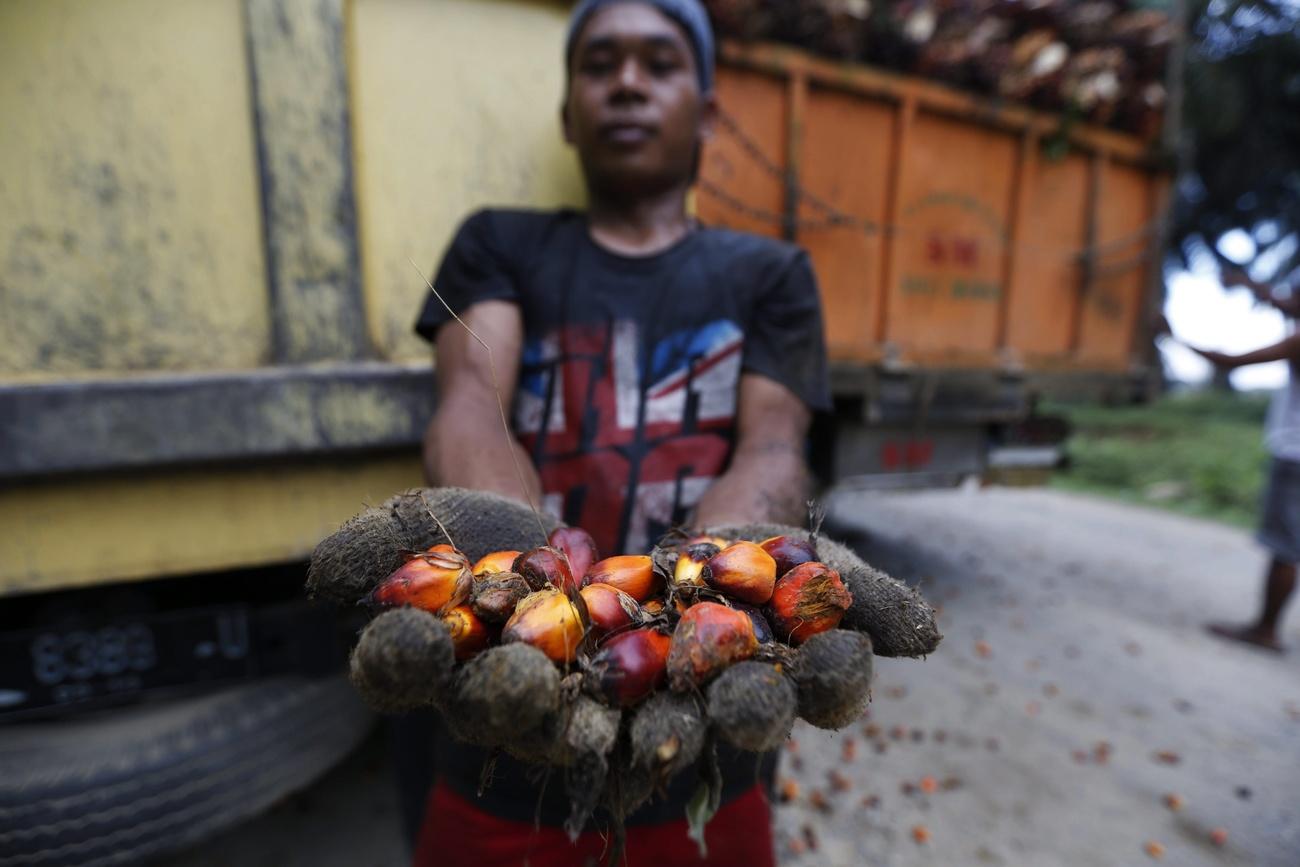
Nestlé excludes thousands of cocoa farmers to meet green commitments

A mapping initiative by Nestlé has revealed that over 4,000 cocoa cultivators in Ghana and Ivory Coast supplying the food giant were farming in protected areas and designated forest land.
Nestlé was able to single out around 4,300 producers as part of a large-scale mapping of farms in the two West African countries, and it has now excluded them from its supply chain. The decision was made public as part of an announcement on ThursdayExternal link by Nestlé that it had mapped over 75% of the 120,000 farms it directly sources cocoa from with the aid of Global Positioning (GPS) trackers.
The exclusion of the 4,300 producers helps Nestlé live up to its commitment to the Cocoa & Forests InitiativeExternal link to end cocoa-related deforestation, as well as satisfy fair trade certifiers who require producers to be in compliance with sustainable practices.
Grey zone
But according to Nestlé, some of the excluded farmers in Ghana could be reinstated if they are able to successfully contest their government’s classification of their farms as forest areas. Some of them have been cultivating their plots for over 20 years.
In the Ivory Coast, some of the producers dropped by Nestlé could soon end up being on the right side of the forest boundary. The government is planning to roll out a new policy that would convert the majority of these classified forests into agroforestry zones where sustainable cocoa cultivation would be allowed. The remainder will be designated as protected areas. The NGO Human Rights Watch has warnedExternal link about the possibility of forced evictions of small-scale cocoa farmers from the newly designated protected zones.
“It is important to find the right balance between farmers’ livelihoods and forest protection. The government will need to consider the exact boundaries of forest zones taking into account the claims of local communities and we will respect the government process and decision,” a Nestlé spokesperson told swissinfo.ch on Friday.
Swiss-based Nestlé is one of 35 chocolate and cocoa companies that have signed up to the Cocoa & Forests Initiative, which was launched in 2017 by the World Cocoa Foundation. Nestlé has committed to ending deforestation in its supply chain by 2020 but is only likely to reach 90% of its target by the end of the year.

More
Why Nestlé won’t meet its zero-deforestation pledge

In compliance with the JTI standards
More: SWI swissinfo.ch certified by the Journalism Trust Initiative





























You can find an overview of ongoing debates with our journalists here . Please join us!
If you want to start a conversation about a topic raised in this article or want to report factual errors, email us at english@swissinfo.ch.